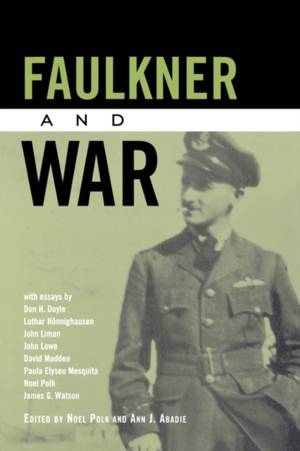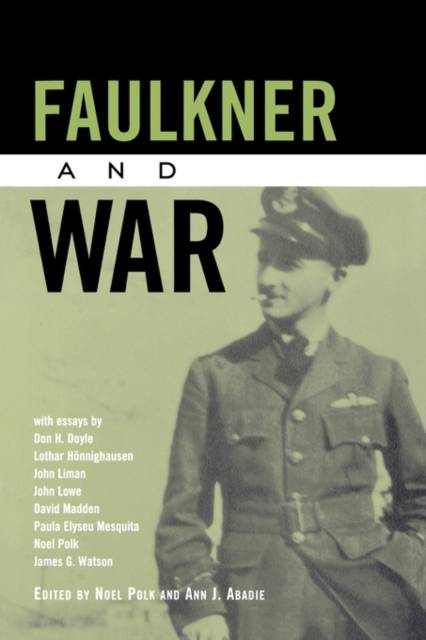
- Afhalen na 1 uur in een winkel met voorraad
- Gratis thuislevering in België vanaf € 30
- Ruim aanbod met 7 miljoen producten
- Afhalen na 1 uur in een winkel met voorraad
- Gratis thuislevering in België vanaf € 30
- Ruim aanbod met 7 miljoen producten
Zoeken
Omschrijving
A critical exploration of the effects and influence of America's wars upon the works of the Nobel Prize laureate There are three wars in the mind and in the art of William Faulkner Faulkner and War, a collection of essays from the Faulkner and Yoknapatawpha Conference, held at the University of Mississippi in 2001, explores the role that war played in the life and work of a writer whose career seems forever poised against a backdrop of wars going on or recently ended or in the volatile years between. Perhaps most significant for all his works was the Civil War, which had ended thirty-two years before Faulkner was born. Yet it was the vast, escapable panorama against which he set his novels of the anguished South. John Limon discusses Faulkner's attempt to show how much of the sense of reality that the Great War produced could be rendered in fiction without explicit reference to it, as, for example, in one novel seemingly remote from the war, As I Lay Dying. Lothar Hönnighausen examines Faulkner's evolving ideological attitudes toward war in Soldiers' Pay, A Fable, and The Mansion. These and other essays give illumination to Faulkner's close analysis of war and its consequences as they appear in his work. Noel Polk, a professor of English at the University of Southern Mississippi, is the author of Children of the Dark House: Text and Context in Faulkner, Eudora Welty: A Critical Bibliography, Outside the Southern Myth (all from University Press of Mississippi), and other books. Ann J. Abadie, co-editor of publications in the Faulkner and Yoknapatawpha Series, is associate director of the Center for the Study of Southern Culture at the University of Mississippi.
Specificaties
Betrokkenen
- Uitgeverij:
Inhoud
- Aantal bladzijden:
- 182
- Taal:
- Engels
- Reeks:
Eigenschappen
- Productcode (EAN):
- 9781604738513
- Verschijningsdatum:
- 17/05/2010
- Uitvoering:
- Paperback
- Formaat:
- Trade paperback (VS)
- Afmetingen:
- 152 mm x 229 mm
- Gewicht:
- 272 g

Alleen bij Standaard Boekhandel
+ 118 punten op je klantenkaart van Standaard Boekhandel
Beoordelingen
We publiceren alleen reviews die voldoen aan de voorwaarden voor reviews. Bekijk onze voorwaarden voor reviews.







